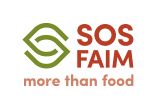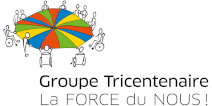
Online sexual coercion and extortion
What is online sexual coercion and extortion ?
One of the newly emerging manifestations in online behaviour is a phenomenon referred to in this report as online sexual coercion and extortion.
By definition, sexual coercion is the act of using pressure, alcohol or drugs, or force to have sexual contact with someone against his or her will and includes persistent attempts to have sexual contact with someone who has already refused.
Sexual extortion, also called “sextortion”, is the blackmailing of a person with the help of self-generated images of that person in order to extort sexual favours, money, or other benefits from her/him under the threat of sharing the material beyond the consent of the depicted person (e.g. posting images on social media).
Sexually motivated perpetrators, use social engineering methods and apply manipulative tactics aimed at establishing more individual relationships. Offenders often use the same social media platform through which contact was initially made in order to obtain lists of their victim’s contacts to target other victims.
The online environment offers almost perfect conditions for perpetrators as they can operate anonymously in a world without geographical barriers, where a high number of potential victims are present. The perpetrators have full control over the victims as sexualised material can easily be distributed. The sensitivity of this relationship, especially in the child’s case, is a factor that strengthens the impact of these threats, as the victim would like to avoid being revealed.
ECPAT Luxembourg’s project in Nepal
The Internet market in Nepal has grown rapidly, from less than 1 percent of Nepal’s population of twenty-three million using the internet in 2005, to nearly 20% in 2016. Around 23 million mobile phone subscriptions have been registered in the country. Youth and children constitute an important part of this population of mobile phone users.
Recent studies on the subject have underlined the vulnerability of these young users to online sexual exploitation. The drastic increase of of Facebook users has taken the country by storm, reaching even remote and rural areas. Based on statistics available online, there were 6,400,000 Facebook users in Nepal as of June 2016. The Internet in itself is a neutral communication tool facilitating access to information ; however, it can easily be used with wrong intentions. The increase in media coverage on the negative consequences of the use of social media in Nepal shows that traffickers, pedophiles or sexual offenders have unlimited opportunities to contact children anonymously.
A 2015 qualitative study, jointly conducted by ECPAT Luxembourg and Child Workers in Nepal (CWIN), revealed that all children interviewed in schools and slum areas had access to Internet primarily through mobile telephones. Some of these children had already been victims of risky acts, such as the reception of nude photos from their Facebook contacts. Findings from another study conducted by CWIN in 2008 found that 74% boys and 26% girls admitted having communicated personal information to strangers on the web and 11% of the children revealed that they already have had sex chats with strangers online.
Child sexual abuse material is not specifically addressed in any laws including the Electronic Transaction Act 208, Nepal’s first cyber law. There is no comprehensive definition of child sexual abuse material in the Children’s Act itself. Online sexual exploitation and online grooming are also not yet incorporated in any laws of Nepal.
Substantial interventions to protect children from online sexual exploitation have yet to be made in Nepal. ECPAT Luxembourg has made a strategic and meaningful contribution with a 3 year Project Agreement for a project called “Preventing and Protecting Children against Online Sexual Abuse in Nepal”, signed in late 2016 with the government of Nepal and a NGO partner, VOC, who implement the project.

The major objective of the project is to enhance the resilience of vulnerable children against sexual exploitation online through awareness raising, to get key stakeholders to collaborate and to enforce restrictions to control child sexual abuse material, to address policy gaps with result based advocacy, and to provide quality services for children exploited online.
The activities can be divided into three areas of focus :
- Prevention :
Several public awareness raising actions are planned, such as panel discussions on TV and radio, publications of papers in newspapers and broadcasts of “Chhaya” at film festivals and in schools. Workshops for social workers, journalists, police officers, teachers, parents, hotel and bar managers will take place.
- Protection :
A challenge will be to identify the victims and to offer them an appropriate psychological support and juristic counselling. More generally, procedures and norms enhancing child’s protection will be introduced in diverse child homes and institutions.
- Capacity building :
Youngsters will be trained to be peer mentors in their schools. Stakeholders of the child protection sector or the telecommunication sector will be trained to make them realise their responsibility towards children and to improve their actions concerning the implementation of children’s rights.
Between 2017 and 2019, a budget of 351’000 Euros is assigned to the different activities. 80% of the project is financially supported by the Ministry of Foreign and European Affairs of Luxembourg. The rest is financed by ECPAT Luxembourg’s fund raising actions throughout the three years.
More information about this project can be found on our website : http://ecpat.lu/nos-actions/nepal-exploitation.
Communiqué par ECPAT Luxembourg



















